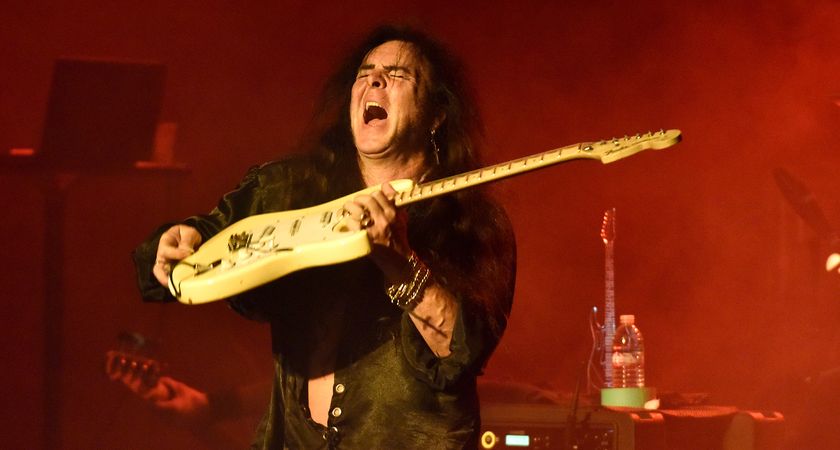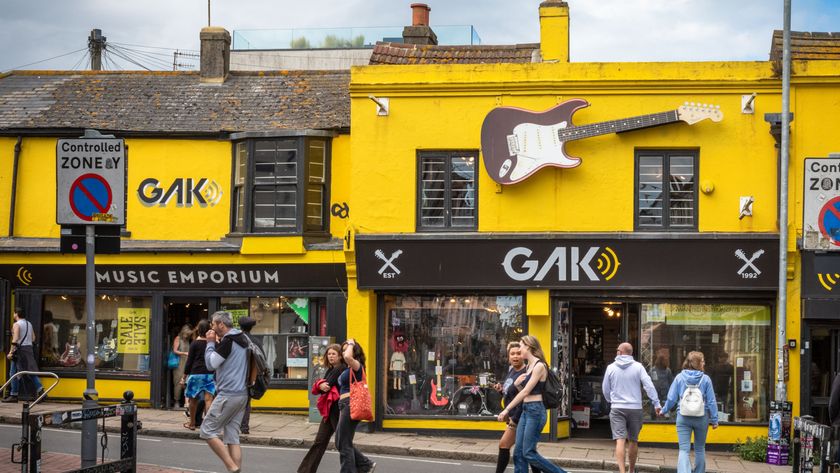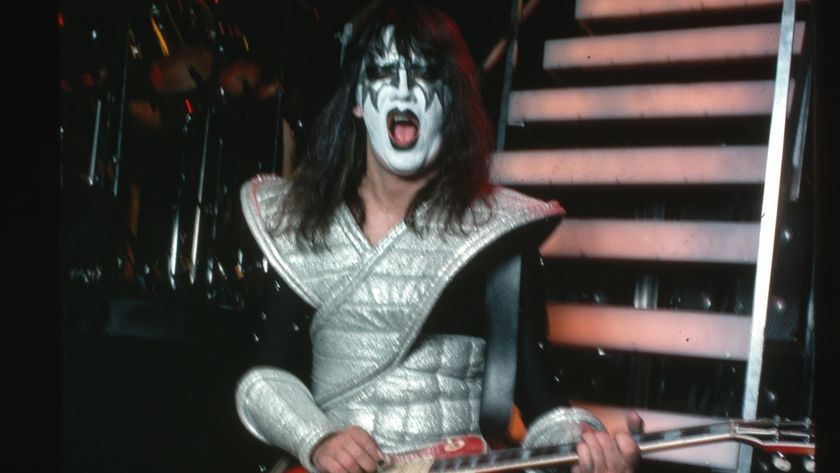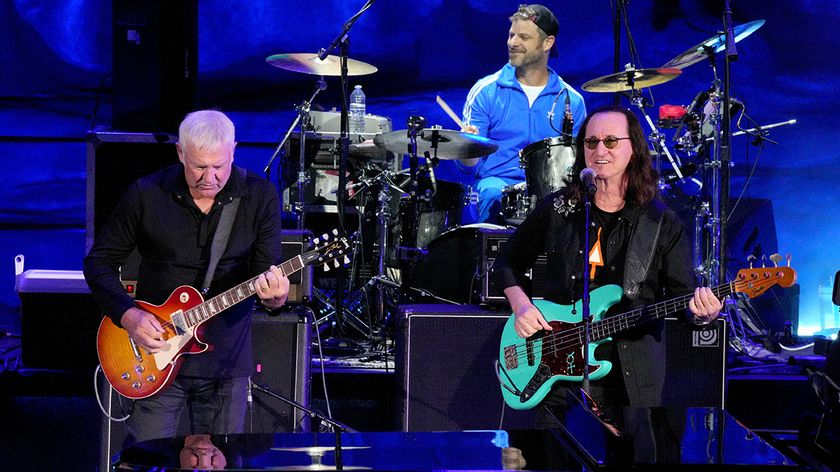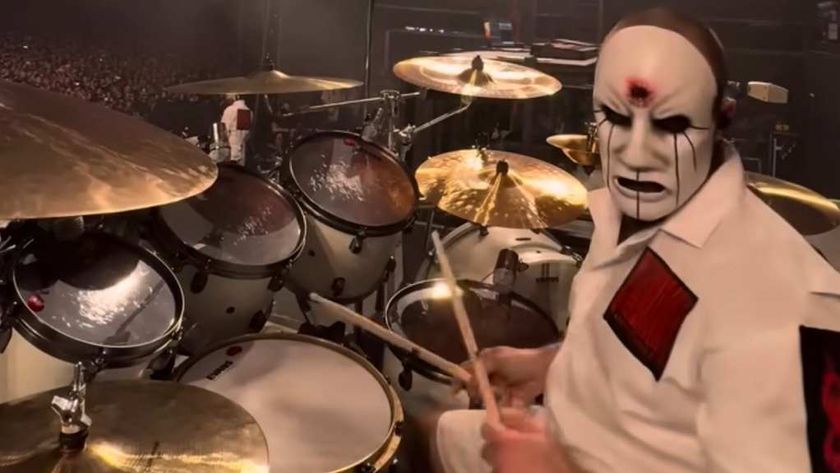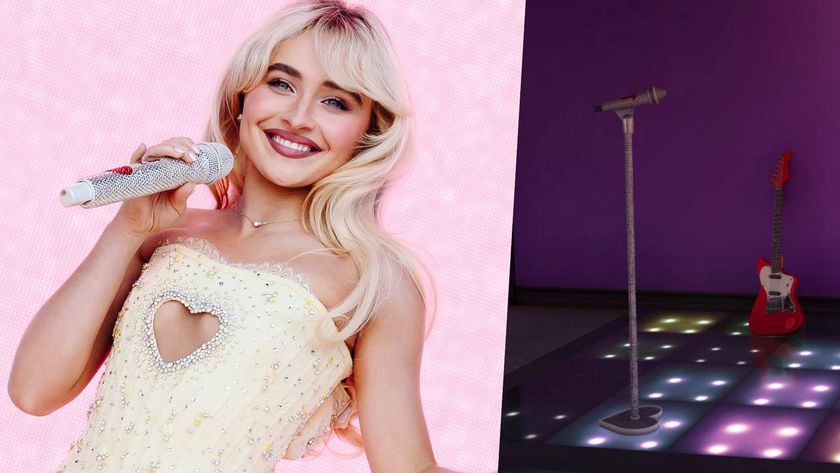Tycho on the story behind his electronica trilogy and why he's ready to move on
We talk to Scott Hansen about his studio and his journey from graphic designer to Grammy-nominated artist
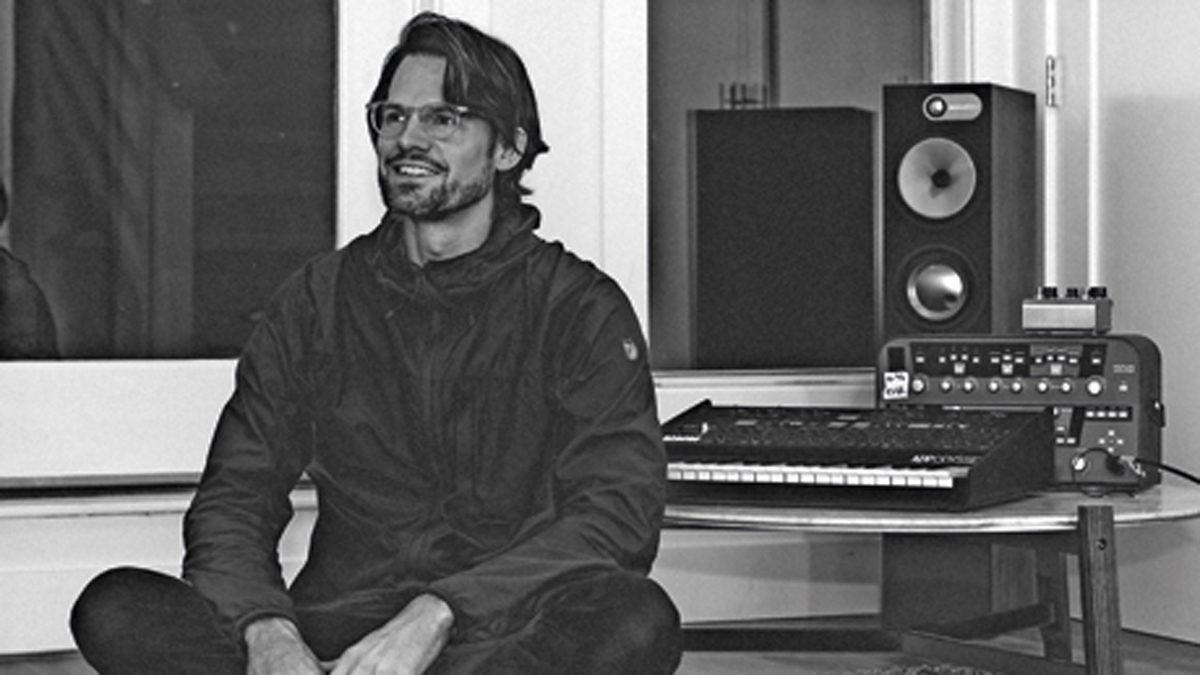
Initially influenced by early drum ’n’ bass, Scott Hansen stumbled into the world of electronic music via a secondhand Roland MC-303 and the downtempo obscurity of early Boards of Canada and Ulrich Schnauss.
Following his largely unnoticed debut, 2010's Past Is Prologue, Hansen’s second Tycho album, Dive, became a chillwave classic. Awash with heavy effects processing, its sublimely atmospheric electronics and equally resonant cover art, designed by Hansen himself, attracted almost unanimous critical acclaim.
His latest album, Epoch, is seen by Hansen as the end of a trilogy of releases that have micro-explored a five-year experiment in multifaceted post-rock electronica. The reward for his efforts is a Grammy nomination for Best Dance/Electronic album of 2017.
You were into drum ’n’ bass initially, but your music doesn’t reflect that…
“I think a lot of it is reflected in the music. I’m talking about a lot of the more atmospheric types of drum ’n’ bass that were around at that time - I think it was afterwards that it became a dance-oriented thing. But if you listen to LTJ Bukem’s Logical Progression, it’s much more ethereal and ambient, so I did start out making DnB but it really didn’t come naturally to me and I floated into this more DJ Shadow-type space. The title track from Past Is Prologue, Spectre from Awake and Rings from the new album are examples of me studying my original fascination with that style of music.”
When did you first start experimenting with sound and what gear did you buy?
“It was kind of serendipitous I guess. The same friend that got me into drum ’n’ bass had cleaned some guy’s house that didn’t have any money and told us to keep his gear. I didn’t know if I could fix these things - it was a little Alesis drum machine and the matching sequencer - so I took them to a music store in Sacramento and they said they could fix them, buy them off me or trade them in for other stuff. So I traded it in for a Roland MC-303, which is a little drum machine thing.”
Get the MusicRadar Newsletter
Want all the hottest music and gear news, reviews, deals, features and more, direct to your inbox? Sign up here.
The change from Past Is Prologue to Dive was tangible. Whereas some artists broaden their sound, you seemed to distil it. Did it just click?
“Yeah, I think that was the crystallisation of everything. I was introduced to Boards of Canada right before Past Is Prologue was wrapped up, and I found that Ulrich Schnauss and BoC really shaped the way that I looked at how music could be. They showed me a different dimension and allowed me to focus in on a very specific space and style of music. I think they’re all very connected and all part of one big idea. I see Dive, Awake and Epoch as a singular work: a trilogy.”
So where might you go next - a new direction?
“I don’t see the trilogy as the end of these ideas, I just think it’s the first time I truly felt that I’ve completed the original concept that I’d been working towards all these years. Epoch kind of realised the vision of exactly what those albums were about. So, personally, I can set that thing to rest, and I can’t really say for sure what that means, but it definitely means that a weight has been lifted. I don’t owe anything to that sound anymore and can do whatever I want.”
Would you consider bringing vocals in?
“Yeah, that’s something I’ve always been interested in pursuing. I actually went into Epoch thinking that I might include vocals, and some of the music was written for that purpose, but towards the mid-point I realised it was more a part of the story than I thought it was going to be. But I definitely think that, in the future, using vocals is on the table.”
With Epoch, are you moving even further away from electronics towards post-rock?
“No, I think the opposite, actually. I feel like Dive was this thing that threw a bunch of ideas out there with all the artwork and new elements I’d never used before. It had an organic element but also a very electronic backbone. And I felt Awake was as far a foray into the rock world as I’ll ever go. But for Epoch, the goal was to get back into that electronic-centred space and pull on those organic elements from Awake without making them the focus. My passion has always been electronic music, so I think I’m finding my way back to that. When I play guitar, I’m thinking of Led Zeppelin or the Beatles and all these songs that are part of the fabric of popular culture; but when I sit down with a synthesiser, it’s much more open-ended.”
The artwork is such a strong element of your identity… What do the circles, shapes and planet themes mean to you?
“For me, the ideas behind the artwork are intended to keep it open-ended for the listener to project their own ideas, so I don’t want to define things too much. But, yeah, there’s a lot of recurring themes and, for me, nature and things we don’t understand about nature, space, the sun and the moon, have always been a central part of the way we try to understand things we can’t understand. I guess I’ve always tried to play on that. When you have instrumental music, there is no defined narrative, so the artwork becomes much more important as you’re filling in a few of the blanks for people.”
You designed all the covers yourself…
“Yeah, I’ve spent most of my adult life as a professional graphic designer. I’ve always thought my life as an artist is about making things more efficient, finding the core of the idea and trying to express it with as little extraneous information as possible, and I think graphic design in general tends towards minimalism as a rule, just because it’s all about clear and concise information.”
“I think graphic design in general tends towards minimalism as a rule, just because it’s all about clear and concise information.”
How have you changed as a producer in the seven years since your debut album?
“I was doing music in my spare time, after work and just as a hobby. I definitely took it seriously, but it wasn’t my living and there were no deadlines or anything like that. I was doing what came naturally to me and not overthinking it, but slowly it became a process and the struggle has always been to maintain the inspirational aspects of it and still enjoy the process, while knowing it has to fit inside this box and be done by this time. So there’s a lot more constraints, but the professionalisation of the project has been the big story.”
We understand you wanted to get the album out quickly rather than sit on it for months…
“With my label, Ghostly Internationally, our release schedules usually dictate that it’s about four to six months before the music sees the light of day, and there’s definitely something about not being able to share the experience in the way that fans are going to experience it. Five or six months doesn’t seem like a long time, but your life is in a different place as an artist and a person, so that music feels kind of dated to me, and it doesn’t feel like I’m sharing in the excitement of this new thing. Music is a product of the time it’s released, and to me that’s important.”
You’ve been promoted in some circles as a band for this release. Is that for live purposes or were the tracks recorded as a band?
“At this point, it’s definitely a partnership between Zac Brown and me. For this album, he was involved in the arrangement at the end because he’s really good at thinking about the songs and trimming things down within the context of an album. And then Count, the engineer that I work with, has a lot to do with the final stages of the mixing, and Rory, the drummer, is on a handful of songs too.
“I try to come up with concepts and send them around, then it’s just a process of adding and changing; but with this album in particular, I wanted to return to my bedroom producer role. I spent four months just working up a base of material to work from, and at the beginning we went to a studio and recorded with an engineer, but it just sounded like jams and I didn’t really know what to do with it. It didn’t feel like the right way to close this chapter; this album needed to be Dive 2.0 - with me going back to spending long solitary periods of time in the studio.”
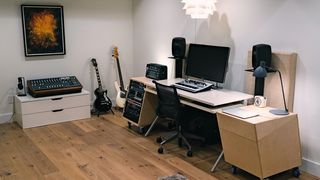
Do you still consider the computer to be the engine of your productions?
“Yes, that’s everything. For me, the editing is such a huge part and I use plugins more and more. They’ve just become so good in the flexibility they afford. Most of the time I prefer the plugins to the real things they’re emulating. Apparently, the human ear thinks that Neve EQs sound pleasing, so of course people are going to make EQ plugins that try to sound like a Neve EQ, but really they’re just making this other thing that has its own strengths and weaknesses, and you have to use it accordingly. But I will say that FIR and IR-type stuff - like the Kemper Profiling Amp, Nebula and all those new Aqua plugins they’re making - is the stuff I’m most excited about. I feel like they’re not modelled, so they don’t sound exactly like the hardware but rather like the hardware perfected, taking away all the defects and artifacts you have to deal with when you’re trying to work with analogue hardware.”
Some say analogue has more character…
“Analogue has a character, of course it does, but so does digital. I guess I started to realise that after using a Korg Triton, which I used for almost the whole Past Is Prologue album. And I used all these little digital reverbs and delays, which have really crappy converters…
“Everybody talks about the SP1200 being amazing because it has this really crunchy digital sound, but the argument starts to break down when you say that, by default, things must be good because they’re analogue. I mean what does analogue even mean - are you talking about tubes? I think people are focusing way too much on this specific thing when you have all these other tools, and sometimes they’re going to be better. It really depends on the context.”
What software are you using for sequencing?
“I’ve been using Reaper since Dive. I switched in 2010 and that was the thing that really opened the floodgates and allowed me to connect my ideas to reality as quickly as possible. I felt I was really held back by other DAWs in the past. It’s very open-ended. There are no real rules and you can get yourself into trouble if you don’t keep organised and do things the right way, but all the other software programs force you into a way of working with them.
“A basic example would be, on any given track you can actually have infinite other tracks nested within it, almost like one track can be a whole project. It just keeps drilling down and the routing is incredibly flexible. I come from a software engineering background, that’s what I studied in school, so I still use Windows and PCs in the studio, and with Reaper it feels to me like if you understand computers on a technical level and know your way around them, that really opens up its possibilities.”
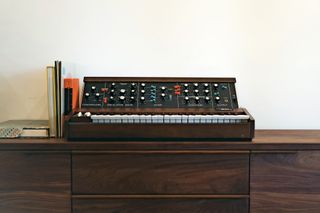
What soft synths are you using?
“On the last record I really liked using Arturia’s CS-80V and also got into the Jupiter-V for pads. I also use Minimoog a ton, and I found that Native Instruments’ Monarch is the best emulation of Minimoog that I’ve ever heard. There are examples where I had a Minimoog sitting right there but I could get a better sound out of Monarch because I stacked three instances of it, or I was just able to tweak it so much that I could get it to sound exactly how I wanted it.
“Oh, and the XILS-lab stuff, like XILS 3 - the one that’s supposed to be like an EMS Synthi, which sounds like a real analogue synth.”
What about the latest soft synth emulations?
“Soft synths always try to emulate the synths perfectly, but what are they emulating? Are they emulating the preamp you recorded it with in your computer? For me, a lot of the tone shaping isn’t just the synth, but what you record it with - are you miking a cabinet or going straight into the back of your interface? These things have a huge effect on how things end up sounding.”
You also have an original Korg MS-20 and some other hardware synths…
“Yeah, it’s weird because I’m only just getting into the MS-20. I think I might have used it on one song, but I’m really excited to take that further with the next record. I got the Prophet-5 about two years ago and just started getting into it at the beginning of this album. It’s a synth that has a great sound but you can’t just have layers of Prophet-5 - that’s just going to be a disaster. For me, it’s all about layering and juxtaposing the synths and finding which ones complement each other. If you’re going to have some big, warm, blobby giant sound in the mix, you’ve only got room for one of those synths.”
Are there any other classic synths you’d like to get? How about an ARP Odyssey?
“I’ve got the new Odyssey - the one that Korg put out recently - and I really like it. I’ve never played a real Odyssey, although Rory the drummer has one and he’d send me recordings of it which are amazing. I’ve always wanted to get a Jupiter-8. I had a Jupiter-6, but because I’d only been doing music for a short while, I didn’t really understand it. I’d love to try it out again.”
You have two Moogs right?
“Yeah, the old one’s been the most inspirational - I think I’ve used that more than any synth I’ve ever used. When the new one came out, I got it to take it on the road. From the demos I heard, it sounded like the real thing. I think I have the Moog revision 3 or something. I never usually pay attention to people when they say one version of a synth is better than another, but if I could choose, I’d keep the new Mini over my old one - there’s something about it that’s more interesting. It’s a little more aggressive.”
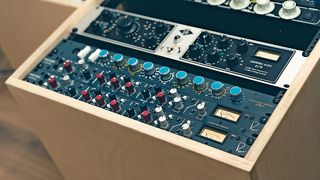
It sounds like everything is being processed through physical outboard - is that the case?
“Yeah, on the front-end almost everything without exception is running through something. On the first record, I used Neve Portico outboard and I got the Shelfords channel strip right after that. For this record, pretty much everything went through the Strymon Timeline and BlueSky delay and reverb pedals, and I used a Strymon Deco a lot for tape saturation. Those are all at the front-end, then everything would go through a Neve 542 broadcast console. I do everything DI: guitars, bass and synths. Once in a while I’ll use an amp, but it’s pretty rare.”
Is the purpose of running everything through hardware to give it a sense of shared character?
“I don’t think that’s a conscious decision, it’s just an artifact of my process - being in my house and wearing headphones because I can’t really blast guitar amps. I don’t have good mics or amps because I wasn’t really a guitar player, and it took me a while to mic them properly to get the sounds I wanted. So when I was first learning guitar, I thought, Okay, I’ll just plug it into instrument inputs and hope for the best’ [laughs]. I’m impatient.”
How would you advise people integrate guitars and electronics for a seamless union of sound?
“A lot of it is the mix and a lot of processing of each thing individually, and thinking about the final song as a whole and how all these pieces are going to fit together. But to tell you the truth, I don’t have any specific tips because a lot of it’s just trial and error. I’d do things over and over again, because my ear just wants to hear one certain thing, and end up making everything sound like it goes into a specific space. I didn’t go to engineering school and didn’t read up on how you’re supposed to do this or that, so experimentation led me to find the sounds that I gravitate towards.”
And you can’t underestimate the role that the mixing process plays in that…
“Absolutely. Before I started working with Count, my stuff sounded so dense and layered. There were so many things going on that if I didn’t get the mix right, it would just sound like a mush. So my relationship with him has allowed me to not fear that and build as much atmosphere, dirt and colour into the sound. He’s really helped me broaden my sonic palette over the years. We spend about two months mixing at the end and definitely try to make that element parallel to the arrangement side.
“We mixed it at my place and mastered it and summed it at his studio, because I think it’s important to go into a different listening space to master and get a different ear on it. There’s always this rule that somebody else has to master it and you have to go to a mastering studio, but I think it’s better if we just master it. We know the speakers, we know what we’re aiming for and Count can mix into the master.”
“There’s always this rule that somebody else has to master it and you have to go to a mastering studio, but I think it’s better if we just master it. We know the speakers, we know what we’re aiming for…”
Presumably, the music is much more satisfying to play as a group now. It might not have been possible with Dive to play as a four piece?
“Totally. When an album has just come out, I like to stay true to the spirit of that song and not get sidelined too much. At least for me, when I go to a show, it’s kind of like, just play the song as it is on the record, we don’t need any funny stuff [laughs]. But a few years later, when I’ve seen that band twice, I want to hear a weird version of a couple of songs. So yeah, with the older sets we try to incorporate some changes and switch things up.
“We’re rebuilding all the technology for the live show right now, which will give us a lot more flexibility on a moment-to-moment basis.”
Congratulations on your Grammy nomination by the way!
“I just found out three hours ago, when my wife woke me up to tell me she saw it on Facebook. I really can’t believe it. I definitely thought that if we ever had a shot then this album was probably the closest we’d ever come to it, but I think of it as more of a recognition of the last three records than this one individually. I don’t think I’m even going to entertain the notion of winning it, but thank you.”
Epoch is out now via Ghostly. For the latest release info and live dates head to Tycho's website.


Future Music is the number one magazine for today's producers. Packed with technique and technology we'll help you make great new music. All-access artist interviews, in-depth gear reviews, essential production tutorials and much more. Every marvellous monthly edition features reliable reviews of the latest and greatest hardware and software technology and techniques, unparalleled advice, in-depth interviews, sensational free samples and so much more to improve the experience and outcome of your music-making.
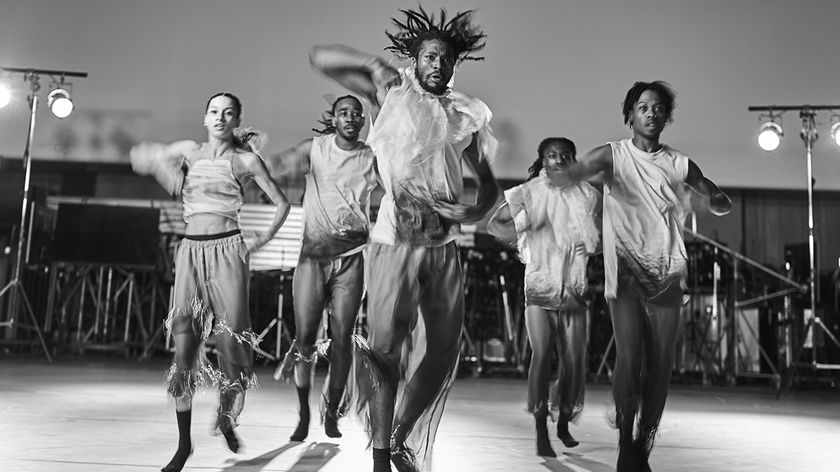
Refurbished Abbey Road Studio One reopens with evening of "boundary-pushing expressive dance" that blends styles from ballet to hip-hop and crunk - and a new mixing desk
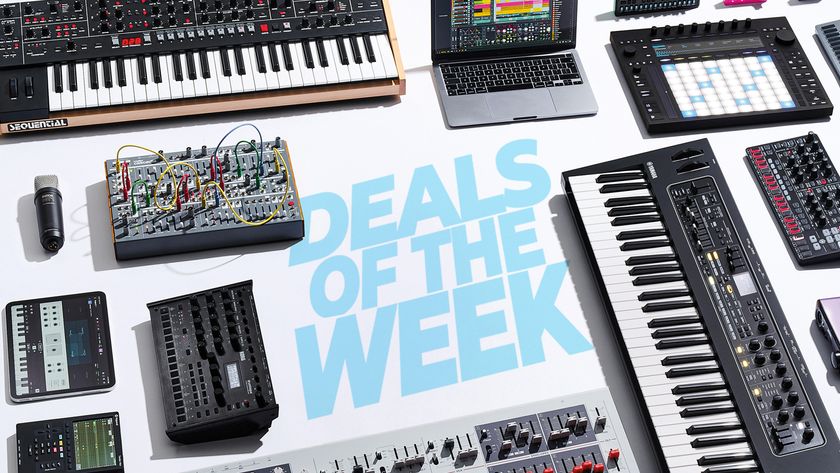
MusicRadar deals of the week: Score over £400 off PRS and Epiphone guitars, $100 off Yamaha and Roland pianos, and so much more


